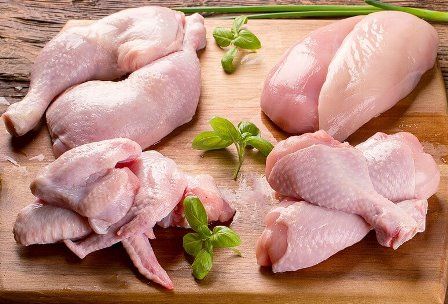
Chicken production now costs R2/kg above selling price due to load shedding, says Astral
SA’s largest poultry producer Astral Foods warned on Wednesday (25/01/2023) that its half-year profit could plunge by up to 90% as it wasn't able to hike chicken prices to cover soaring feed and load shedding costs.
The JSE-listed group said that the cost of producing a chicken now exceeds the selling price by R2 per kilogram.
The group is also putting on hold a large part of its R737 million capital expenditure plans.
Its headline earnings per share are now expected to fall by "no more than 90%" to 142c for the six months ended March 2023.
On Wednesday morning, shares in the group fell 2% to R156.49 as the market digested the news.
Astral previously said it would have to hike chicken prices to compensate for increased load shedding and feed costs and municipal infrastructure problems. However, it found itself unable to do so - with the result being it continuing to subsidise the increased production costs.
Astral said its poultry division had experienced "severe operational disruptions" through the first quarter of its 2023 financial year due to load shedding, adding this had led to "abnormal additional costs as well as substantial production cutbacks of at least 12 million broiler placements" for the first half of financial 2023.
It said there had been a slaughter backlog, resulting in older and heavier birds consuming more feed.
"In addition, excessive processing costs are being incurred as additional shifts are being implemented to try to address the substantial backlog in the group's integrated broiler supply chain. The larger bird size and the continued load shedding disruptions have compromised the group's poultry offering."
The group said that its balance sheet remained "healthy" with "good levels of liquidity".
Astral's feed division fared a bit better. It could reduce the effect of load shedding by using available spare capacity among its various feed mills.
Because of the disruptions to the poultry division's operations, "substantially higher internal feed volumes are required", which should positively affect the segment's financial performance.
Cost of doing business increasing
Casparus Treurnicht, portfolio manager and research analyst at Gryphon Asset Management, said Astral's update showed that the cost of doing business in SA is increasing fast – due to mistakes by the government. And he also warned that smaller poultry producers might find themselves in a position where they have to close shop.
Astral had a healthy balance sheet, which means the company is in a better position than smaller local players.
What worried Treurnicht was that he believed the ongoing problems besetting chicken producers and others would be permanent due to infrastructure problems.
"Chicken and eggs have always been very cyclical businesses and they go through swings from time to time - but I hate to say it, this is different.
"Most importantly, the rising cost of chicken [traditionally the cheaper protein] is going to hit the poorest households more, exactly what the government would not want."
News Category
- International retailers
- On the move
- Awards and achievements
- Legislation
- Wine and liquor
- Africa
- Going green
- Supplier news
- Research tools
- Retailer trading results
- Supply chain
- Innovation and technology
- Economic factors
- Crime and security
- Store Openings
- Marketing and Promotions
- Social Responsibility
- Brand Press Office
Related Articles

Empowering South African households through gro...

SPAR shares practical tips to beat food inflation

South African motorists could be paying up to R...

Big VAT changes on the cards


